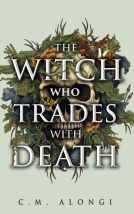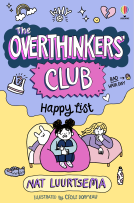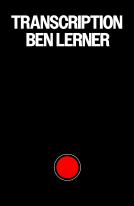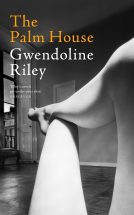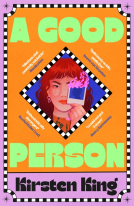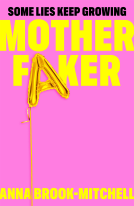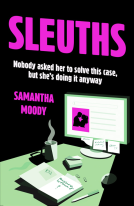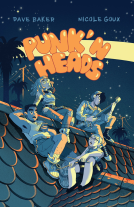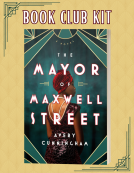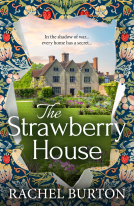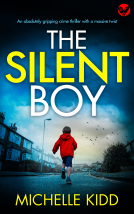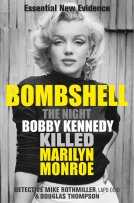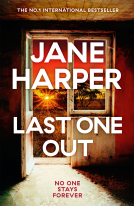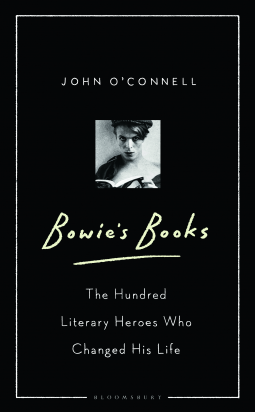
Bowie's Books
The Hundred Literary Heroes Who Changed His Life
by John O'Connell
This title was previously available on NetGalley and is now archived.
Send NetGalley books directly to your Kindle or Kindle app
1
To read on a Kindle or Kindle app, please add kindle@netgalley.com as an approved email address to receive files in your Amazon account. Click here for step-by-step instructions.
2
Also find your Kindle email address within your Amazon account, and enter it here.
Pub Date 14 Nov 2019 | Archive Date 14 Nov 2019
Talking about this book? Use #BowiesBooks #NetGalley. More hashtag tips!
Description
'This is the unwritten Bowie book that needed writing' CAITLIN MORAN
'What is your idea of perfect happiness?'
'Reading.'
'What is the quality you most like in a man?'
'The ability to return books.'
Three years before he died, David Bowie made a list of the one hundred books that had transformed his life – a list that formed something akin to an autobiography. From Madame Bovary to A Clockwork Orange, the Iliad to the Beano, these were the publications that had fuelled his creativity and shaped who he was.
In Bowie’s Books, John O’Connell explores this list in the form of one hundred short essays, each offering a perspective on the man, performer and creator that is Bowie, his work as an artist and the era that he lived in. Bowie's Books is much more than a list of books you should read in your lifetime: it is a unique insight into one of the greatest minds of our times, and an indispensable part of the legacy that Bowie left behind.
Advance Praise
'You can only truly know a pop star through his bookshelf. John O'Connell's brilliant, gossipy book gives you a whole new secret David Bowie: the reader. This is the unwritten Bowie book that needed writing' CAITLIN MORAN
A Financial Times pick for 2019
Available Editions
| EDITION | Hardcover |
| ISBN | 9781526605801 |
| PRICE | £16.99 (GBP) |
Average rating from 48 members
Featured Reviews
 Michael J, Educator
Michael J, Educator
Quite fun, if inessential, overview of the 100 books David Bowie put out as being most influential on him. Overall, the book has a lightness of tone and generosity that makes it a pleasure to dip into. However, while O'Connell is good on the potential links between individual books and Bowie's life and work, I would have liked more of an overview about what this choice of books says about him. Also I could have done without the 'Read it while listening to' choices (You'd be fed up of 'Without You' before you got very far into 'Herzog', for example) and, as has been pointed out, the 'if you like this, try' suggestions could have been a bit more surprising. There are a few errors (Schoneberg in Berlin has never been mostly Turkish; Germany occupied Czechoslavakia in 1938 not 1939) and he's harsher on 1980s Bowie than he needs to be (even 'Tonight' has a couple of very good songs), anyone who emphasises the greatness of both 'Low' and 'The Laughing Gnome' in a single sentence is OK with me.
 Andrew S, Reviewer
Andrew S, Reviewer
I was a big Bowie fan back in the early seventies, a time when I was in my teens and he was releasing what to me remain his most iconic albums: Hunky Dory & Ziggy Stardust and the Spiders from Mars. He was fresh, his voice just a little off and his lyrics somewhat strange but always conveying a story. I wasn’t quite so enamoured with the albums that followed but in 1983 he released Let’s Dance in which a re-invented Bowie produced a collection of tracks that everyone I knew loved and played to death. And he would, of course, continue to re-invent himself, as he always had – often when I wasn’t watching.
But what of the man? I knew surprisingly little of him really, and I certainly hadn’t perceived him to be a voracious reader. I suppose his lyrics had to come from somewhere; something had to be feeding his mind, planting seeds for the many varied stories he told in his songs. Bowie is described an an autodidact, who struggled with formal education but spent a lifetime self-educating. So it turns out he was a huge reader, reading constantly including sometimes from a library of circa 1500 books he often carted around with him when he travelled. This book provides a list of the one hundred books he considered most important and influential (note – these are not necessarily the books he most enjoyed).
There’s a real mix here. I recognised quite a few but there are only two books (plus one magazine and one comic) that I can actually claim to have read. There are about half a dozen books I’ve sometimes planned to read but haven’t gotten around to yet (by authors such Hitchens, Martin Amis, DeLillo and Capote), quite a few I really don’t fancy and a fair few more I’d never heard of. There’s a good sprinkling of science fiction, a little philosophy, some poetry and much of the rest is an eclectic mix of the avant-garde and the obscure. Getting on for a third of the books were written before he was born.
The author tries to explain in what way each book was significant for Bowie, what he took from it or how his discovery of the text tied in to a particular song he wrote (for example the phrase homo superior in ‘Oh! You Pretty Thing’ was scavenged from Olaf Stapledon’s science fiction novel Odd John). There’s also a thread of autobiographical commentary running through the piece, so we learn quite a bit about Bowie’s development as a person and as an artist as we make our way through the list of books. In fact, I found one if the most interesting elements to be how the books seemed to help shape the man and that the changes wrought duly steered him towards an ever more off-centre collection of books.
I didn’t find myself wishing to rush out and grab many titles listed here but I did find it a fascinating study of this chameleon of a man.
If you love David Bowie then you will love this book. If gives you an insight into David Bowie’s love & taste for literature. Books that have influenced him and some books that he enjoyed.
As a huge Bowie fan I throughly enjoyed this book.
Thank you to both NetGalley and Bloomsbury Publishing for gifting me this book in exchange for my honest unbiased review
 Reviewer 512938
Reviewer 512938
A fascinating read delving into a great variety of some of Bowie's favourite books. From classics to the unknown (at least to me), the links from these books to his life are so interesting, plus a great way to find out about your next read! An eclectic selection of literature and very well written by O'Connell.
 Librarian 574614
Librarian 574614
This is exactly the type of book a literature and music nerd like me thrives off! The addition of what Bowie song to listen to whilst reading he book/comic/magazine is a lovely touch - shows how well-researched and lovingly written the book is. I'm going to buy this book for my Bowie-obsessed dad, he'll love it.
 Anne M, Reviewer
Anne M, Reviewer
This is a very simple idea, very cleverly executed and I loved it. If you rate David Bowie, or if you love reading about books, or even better both, then this is the book for you. John O'Connell has taken the list of the 100 most influential books released shortly after Bowie's death and weaved them into the story of his life. He ties the books to when it was likely Bowie was reading them, who may have recommended them, how they may have influenced Bowie's writing and the author also explains the background of the books themselves. There are excerpts from Bowie's writing to show how the various books made an impact on him and pieces from interviews when he talks about the books.
This is a diverse and eclectic list and starts from when Bowie was young and getting ideas from his older brother through to the latter parts of his life when he was putting ideas together and working through concepts on his own. This is high level stuff and very enlightening about the man Bowie was. The author finishes each little section on the chosen book with a further reading suggestion and a link to Bowie's music to listen to when reading it.
I found this fascinating on so many levels. The reason Bowie chooses certain books, the obvious and obscure ways they influenced his lyrics and his subtle dedication to his learning that followed him throughout his life. There is something here for any fan of David Bowie and if it encourages people to pick up "The Origins of Consciousness in the Breakdown of the Bicameral Mind" or Camus' "The Outsider" or Angela Carter or Sarah Waters, then Bowie has left an amazing legacy.
I was given a copy of this book by Netgalley in return for an honest review.
 Media/Journalist 532646
Media/Journalist 532646
I really enjoyed reading this and getting such an amazing insight into the mind of David Bowie. I think this is a really important book to show how a love of reading can fuel creativity in all areas.
An exegesis of that list Bowie made of the hundred books which influenced him the most, and one which at its best has some lovely and insightful turns of phrase, really bringing out their interconnections. Of Berlin Alexanderplatz's protagonist, say: "Biberkopf is Shakespeare's unaccommodated man, out on an existential limb – the kind of man Bowie flirted with becoming on the heaviest of his heavy nights out. But he could never quite get there. There was always someone around to step in and pull him out of the mire." And for the books I don't know at all, the potted introductions to the likes of A Grave For A Dolphin and Infants Of The Spring are very informative.
Elsewhere, it's less sure-footed, sometimes just stating the bleeding obvious (eg on A Clockwork Orange), and elsewhere verging on outright wrong. For instance, it traces the notion of 'homo superior' back to Odd John, which is fine, and then talks about it being everywhere as a notion in the sixties that there was a hidden elect who oversaw human development and diffused knowledge, which is also fine. But then quotes Lovecraft in a list of examples, which...well, you can twist that around and see how it works, but if you don't already know Lovecraft's stuff, that passage could give you a very odd idea of it. Or when addressing Day Of The Locust, which is contrasted with West's mate Fitzgerald, who we're told only addressed Hollywood's upper echelons in The Last Tycoon, not the bottom-feeders who interested West. Well, true as far as it goes, but by failing to note the existence of the Pat Hobby stories, also deeply misleading. As for the notion that Burgess' Earthly Powers is a book which physically has to be read on Kindle...well, I never knew the old stereotype of Bowie fans as limp-wristed was intended so literally. Basically, you will learn something from this, but fundamentally it's a loo book. Although considered as such, not a bad one. Even within that category, mind, I could probably have done without the occasional cartoons.
(Netgalley ARC)
 Stephanie M, Librarian
Stephanie M, Librarian
A lovely book that is equal parts an insight into a music legend and some of the greatest books of all time. The links between the two are very deftly done (the song choice to accompany each essay is a very nice touch!). Even the most ardant Bowie fan or literature nerd would find something new and interesting in this book. It's well researched though, perhaps, a little bit simplistic in its literature studies at times. However, as an insight into the expanse of Bowie's life and career, it's a novel and interesting way of approaching it.
It's an enjoyable read but not necessarily one you would keep returning to. It would make a great gift for someone who is interested in either literature or music, however, and most definitely deserving of a read.
Thank you so much the publisher and NetGalley for providing me with a free copy in return for an honest review.
A great insight into Bowie as a person. It was really interested in learning more about books that shaped his art and in turn have shaped pop culture.
Thank you to Bloomsbury and Netgalley for an e-arc copy.
 Reviewer 389778
Reviewer 389778
A great insight into the mind and what makes him the man he was.
His influences and life directions derived from this, that makes the person whole.
 Elaine D, Reviewer
Elaine D, Reviewer
In 2013 there was an exhibition of David Bowie's life which included the list, which he wrote, of the 100 books which influenced his life. John O'Connell has taken this list and added commentary on each of the books in turn to make a very readable book in it's own right.
What an extraordinary project and what a fascinating list. The books vary from fictional accounts, generally from highly esteemed authors to non fictional books, often relating to art or music. Sometimes the author comments mostly on the book and sometimes on the time or place and how the book may have influenced Bowie. I was interested in how the author was credible in bringing this together - there is a short biography at the end which explains that he was senior editor at Time Out magazine and has also written for UK broadsheets, mainly as a literary critic. I would have liked there to be some sort of summary at the end with the author talking about his process researching and writing the book. Sadly this isn't included, but there is a very impressive selected bibliography which hints at the extent of the research required.
I liked the illustrations throughout and I liked the recommendations of songs to listen to alongside each chapter. I read the kindle edition, but feel it would be much better in hardback - a coffee table book to pick up regularly and dip into.
Thankyou to Netgalley for an early copy of the book in exchange for an honest review.
Readers who liked this book also liked:
We Are Bookish
Historical Fiction, Literary Fiction, Multicultural Interest
